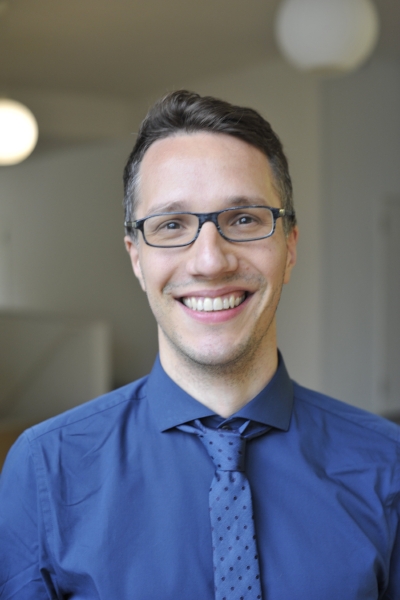
Dr. Michael Facius
1) What are your research interests?
My research interests are broadly in the early modern and modern cultural history of Japan in its regional, transnational and global contexts. I am particularly fascinated by the changing patterns of knowledge exchange and circulation and the history of language and translation.
2) What is your current research project about?
Currently I am working on a book project called “Beyond Edo. Transnational narratives of the Early Modern in 20th-century Japan”. As the title suggests, the project employs approaches from transnational and global history to explore stories about the early modern period in Japan. I focus on stories which have not received a lot of scholarly attention: stories that go beyond “Edo” – the old name of the capital which is often used as a shortcut for cultural achievements from kabuki to sushi which are today closely associated with a “national” heritage. Such stories were not just told by professional historians. They can also be found in tourist books, museum exhibitions, or computer games. Depending on the genre, time frames and teleologies of these stories varied widely, and even though they are in some sense about Japan, the people who told them could just as well be Chinese or European. The project is comprised of separate case studies that together showcase the diverse forms of the Japanese engagement with the early modern past.
3) Please describe shortly the main stations of your academic career.
After an MA in Japanese studies and linguistics in Bonn, I held positions at two interdisciplinary research clusters at Freie Universität Berlin titled “Actors of cultural globalization” and “Episteme in motion. Knowledge change in premodern societies”. Between 2009 and 2015, I undertook several research trips as a visiting fellow at the University of Tokyo. In 2016 I received my PhD from Freie Universität with a dissertation on the transformation of Chinese knowledge in Japan in the context of 19th-century globalization. Since then I have served as coordinator of the graduate school “Global Intellectual History” and research associate at the Center for Global History. This April, I started a British Academy Newton International Fellowship at the Centre for Transnational History, University College London.
4) How has receiving a TIFO Fellowship benefitted your research and/or your career? What do you think are the opportunities such a fellowship can offer to junior scholars?
While my positions at Freie Universität came with some travel funds provided by the German Research Council, the TIFO fellowship allowed me to substantially extend my stay at the University of Tokyo in 2009/10. This was my first research stay in Japan, so the fellowship made all the difference: I was able to do in-depth work in the relevant archives, make new research contacts, participate in academic events, and generally familiarize myself with Japanese academia. I am truly grateful to my liaison officer at Toshiba International Foundation, Ms Obayashi Masae, who made every effort to provide me with all kinds of information, bring me in touch with other researchers, and invite me to cultural events. The report I wrote up for the bulletin of the European Association of Japanese Studies, which manages the application process for TIFO, turned out to be of great value as well, because it got read by established scholars who were so kind to approach me and express interest in my work. All in all, the fellowship was a brilliant opportunity for me, as I am sure it will be for future grantees.
5) Please name three of your major publications
Transcultural Philology in 19th-century Japan: The Case of Shigeno Yasutsugu (1827-1910). In: Philological Encounters 3 (2018), p. 3-33.
China Übersetzen. Globalisierung und chinesisches Wissen in Japan im 19. Jahrhundert. Frankfurt am Main, Campus, 2017.
Japanisch – Kundoku – Chinesisch. Zur Geschichte von Sprache und Übersetzung in Japan. In: Geschichte und Gesellschaft 38 (2012), p. 217-242.
